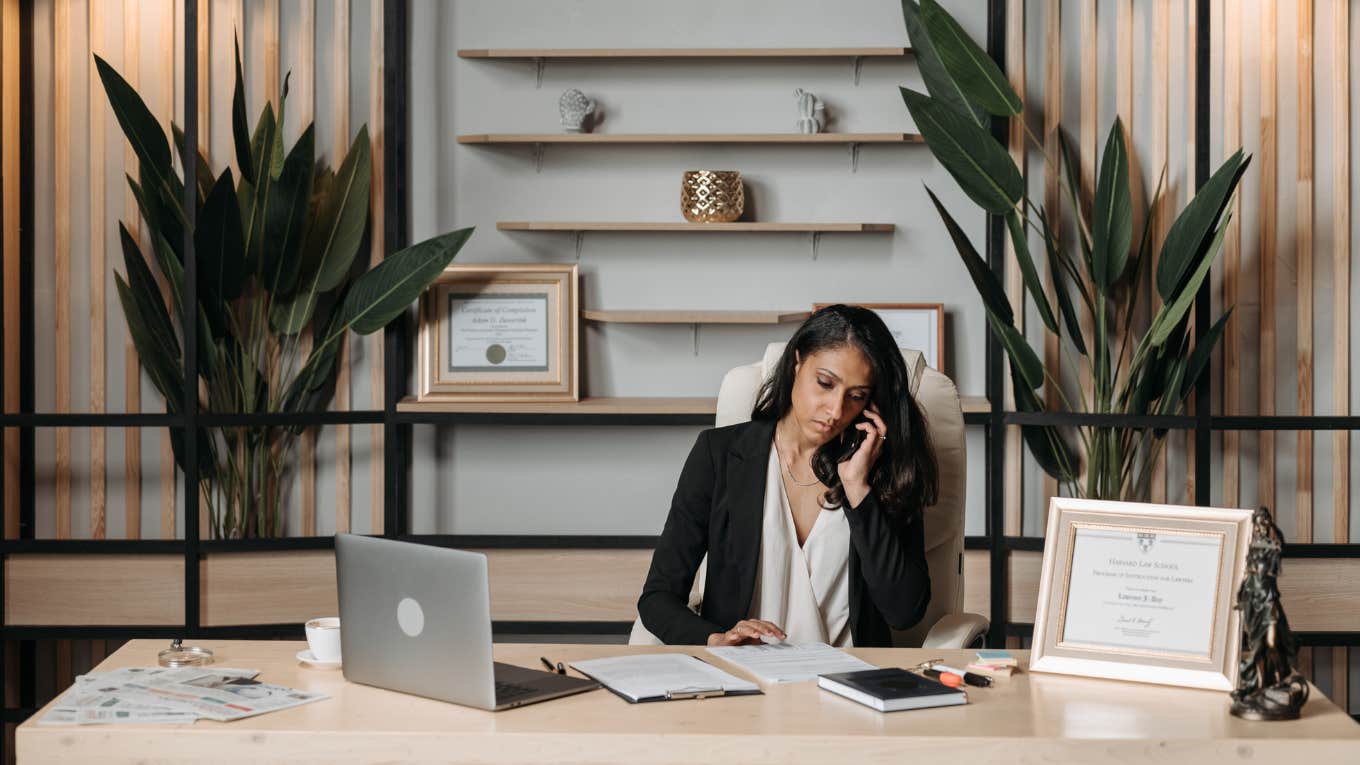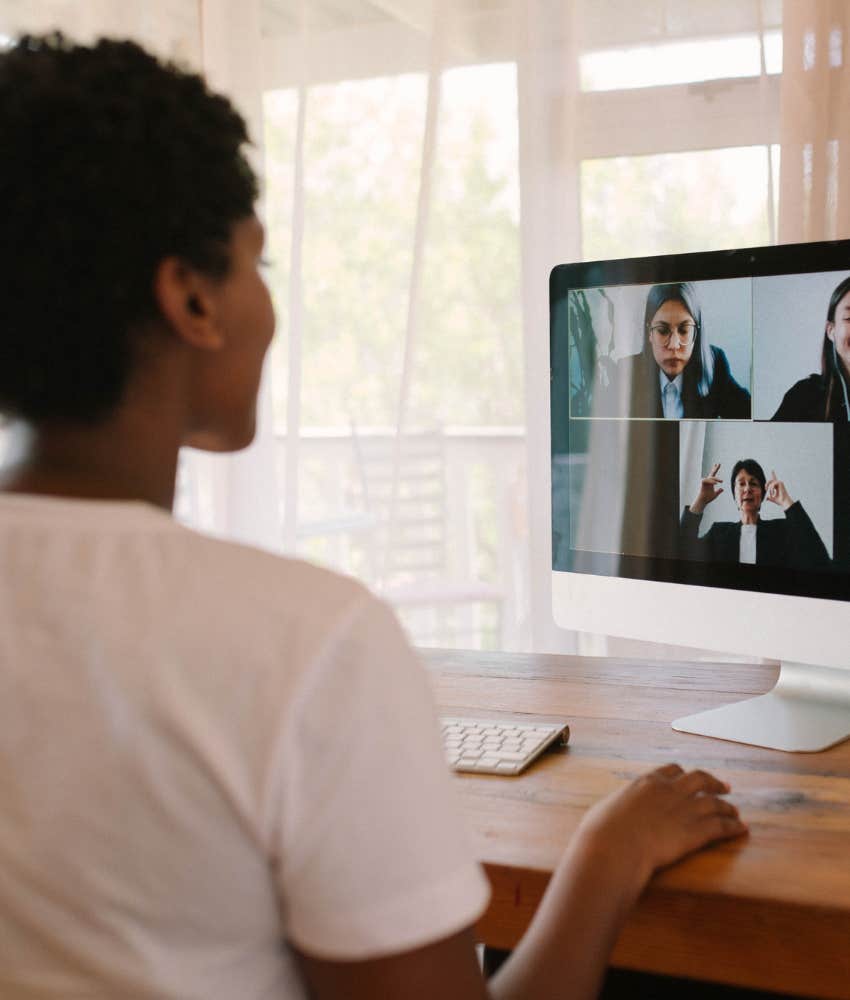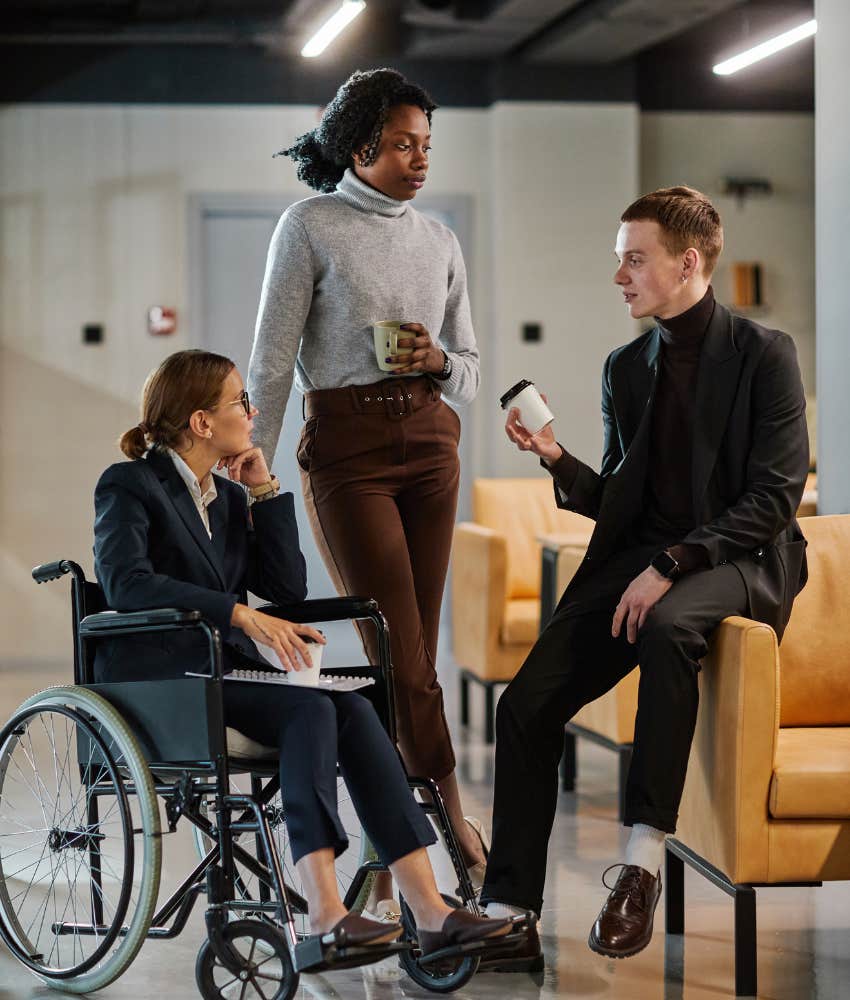Black Employee Shares How She Combats Microaggressions In The Workplace While Still Being 'Professional'
"I'm not changing my behavior because you feel uncomfortable."
 Pavel Danilyuk / Canva Pro
Pavel Danilyuk / Canva Pro A Black woman admitted that there's one thing that consistently annoys her about corporate America, and it involves the tone and mannerisms in which her white counterparts speak and acknowledge her.
In a TikTok video, Alia revealed that as a Black woman in predominantly white spaces, especially for work, she's gotten really good at calling out the minuscule quips and remarks that many of her white co-workers think are more than okay to say to her.
She explained how she combats microaggressions in the workplace while remaining professional.
"There's one thing that will always irk me in corporate America, and here's how I respond to it," Alia began. She explained that she'd recently gotten out of a meeting at work where everyone was on camera. She received a message from one of her co-workers via Zoom that said, "Fix ya face, you mean muggin'."
Immediately after getting the message, which was extremely inappropriate and also a form of microaggression, Alia politely and professionally responded, writing back, "What an interesting thing to say."
Of course, Alia's co-worker only felt inclined to send this message and phrase it that way because Alia is Black. It's a form of covert microaggression that tends to happen to Black employees in the workplace.
Her co-worker quickly tried to retract their statement, assuring Alia that they didn't mean "mean muggin'" in how they'd said it but rather that she looked disinterested during the meeting.
Is that supposed to make it any better? First of all, even if Alia was "looking" disinterested, it's not a co-worker's right to message her and inquire about it. Second, should she have been smiling from ear to ear on camera like a crazy person?
 Photo: The Retha Ferguson Collection / Canva Pro
Photo: The Retha Ferguson Collection / Canva Pro
I'm sure multiple other people looked disinterested and were on camera, but for some reason, Alia's co-worker felt the need to reach out to her specifically.
Alia brought this up with her co-worker, pointing out that she could argue for other people who have the same expression as she did.
She noticed that if she isn't smiling, nodding, or expressing any joy on her face, other people feel extremely uncomfortable around her. While she doesn't know how to change that, what she does know is how to address it whenever it comes up.
 Photo: Mikhail Nilov / Canva Pro
Photo: Mikhail Nilov / Canva Pro
"I'm not changing my behavior because you feel uncomfortable," Alia insisted. "Furthermore, the peers in that meeting, I mean, I could see their phone reflections in their glasses. They looked disengaged, but I guarantee that co-worker didn't call them out. It's genuinely so exhausting."
Other Black women pointed out that the corporate space doesn't always make room for them.
In another TikTok video, an NYC-based content creator named Sarah Farma claimed that she didn't want to scare anyone but that corporate spaces in this country aren't very forgiving and understanding of Black women.
Unfortunately, Farma is right.
According to the Pew Research Center, about four in 10 Black workers (41%) say they have experienced discrimination or been treated unfairly by an employer in hiring, pay, or promotions because of their race or ethnicity. Among Black workers, 48% of men and 36% of women say they’ve experienced discrimination or unfair treatment by an employer due to their race.
Farma noticed that many Black employees aren't given the same amount of grace as their white counterparts in various fields and industries. If Black people don't smile consistently, if they speak in a flat tone, if we communicate directly when we have a problem, if we're not giving what everyone else considers 100% — then it all instantly becomes a problem.
Farma explained that many people don't quite understand the layers that exist when it comes to diversity in the workplace. They think it just means seeing a company photo on LinkedIn, where people of all races and backgrounds are smiling and coming together.
It means more than that. It means working with people who have different communication styles, humor, cadences, and everything else that makes us unique.
 Photo: Konstantin Pelikh / Canva Pro
Photo: Konstantin Pelikh / Canva Pro
"I don't think some people understand the social pressure on top of just trying to get your work done and how draining and exhausting it can be for some of us." For Black women, on top of dealing with microaggressions and sometimes overt racism, we're also dealing with misogyny in the workplace. Having to navigate these intersecting forms of discrimination only adds a layer of complexity and challenge to our professional lives.
Black women are never just allowed to do their jobs.
We're expected to be agreeable and perform in ways that make our white counterparts comfortable whenever they're around us — anything else, and we're seen as combative, angry, and unreasonable. We aren't allowed to have bad days, and we have to constantly sift through the sly comments said by our co-workers because the thing about microaggressions is how slippery they really are.
To combat this, Farma offered advice to non-Black corporate employees: "I also encourage people who are not minorities in the corporate space to listen to these conversations because although you do not need to overpower someone's voice, you can be an echo and an advocate for your fellow co-workers."
Nia Tipton is a Chicago-based entertainment, news, and lifestyle writer whose work delves into modern-day issues and experiences.

